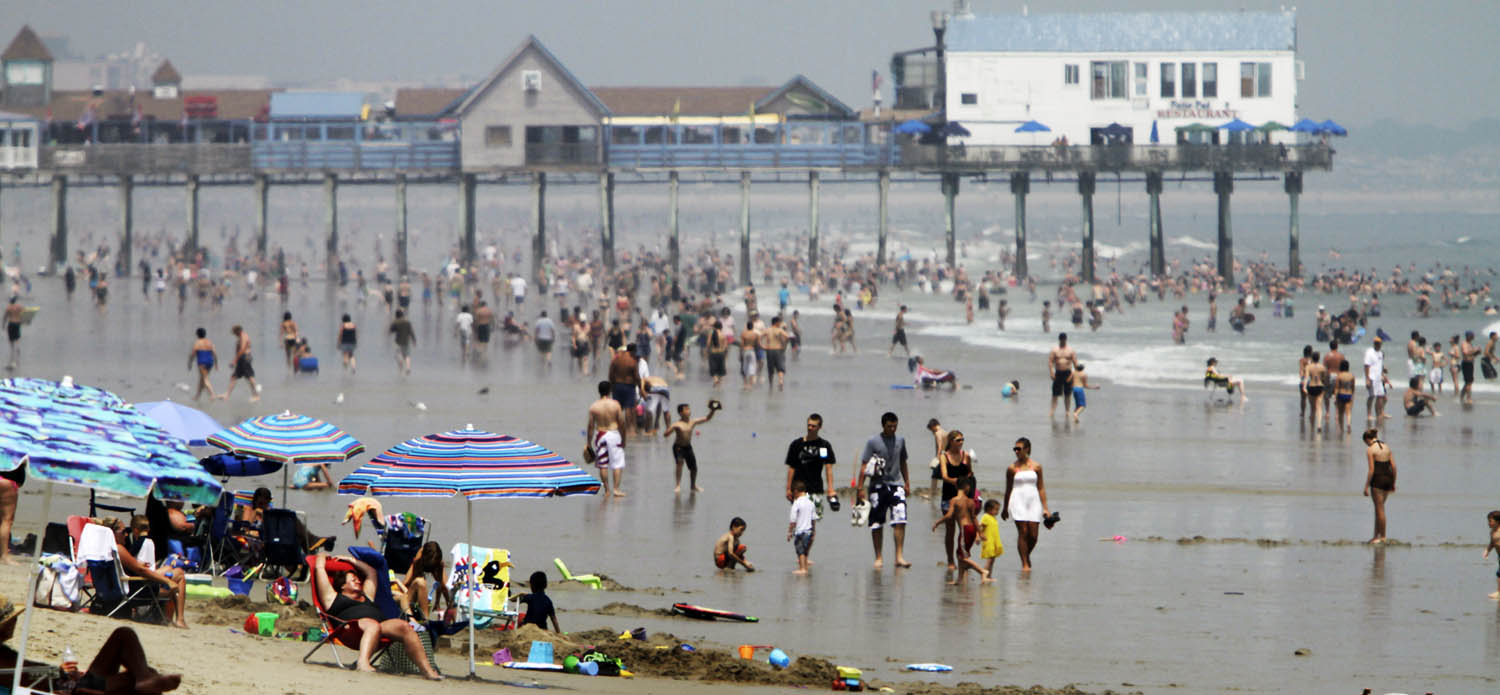Advertisement
Visa Limits May Cause Problems For New England Resorts

Summer resorts around the nation are bracing for a tough season. Not because the tourists won't come, but because the workers might not. The reinstatement of a cap on visas for temporary workers has some in the hospitality industry predicting catastrophe.
It's pretty quiet right now in Ogunquit, Maine. But Sarah Diment, owner of the Beachmere Inn, says come summer a surge of tourists transforms it into a bustling New England ocean resort colony. And they are accompanied by an influx of foreign workers.
"Most of the women that have worked for us have come from Jamaica," Diment says. "They come, they work. They buy — it's an insane amount of goods that they ship home. And then they go home every year."
But prospects are dimming for their return this year. A cap will soon kick in on the number of short-term work visas provided under the H-2B program. It brings in low-skilled labor for non-agricultural jobs that American employers say they can't fill closer to home — mostly in landscaping, seafood processing, housekeeping and other hospitality services.
The program provides roughly 66,000 of the visas, and some years, including 2016, Congress has allowed more. But not this year. Southern tier states, such as Florida, have already secured workers, but many resorts with later seasons won't make it into the queue. Diment says she's likely to close up whole sections of the Beachmere, cancel reservations booked long ago, and possibly lay off local staff.
"If I have to take out 20 rooms out of inventory," Diment says, "then do I really need five people in our maintenance department? Do I really need eight people at the front desk? Not only would it impact my guests, but it would potentially impact what we do here as a hotel to stay open with everyone else."
And the squeeze is expected at resort communities up and down the East Coast and its islands. On Martha's Vineyard, Chamber of Commerce Executive Director Nancy Gardella says local inn owners rely on hundreds of Jamaicans who've been coming for years — and rising to supervisory positions — and who are unlikely to secure visas this year.
"We have one industry here in Martha's Vineyard and it is tourism," Gardella says. "It's the kind of problem that you're faced with when the economy is going well, but on the flip side, if you cannot provide the necessary services, you're in deep trouble."
Such concerns have caught the attention of a bipartisan coalition of senators, including Maine Republican Susan Collins, that wants an audit of the H-2B program to ensure all available visas are issued.
Advertisement
"I think it's important to realize, even in this environment, where immigration issues have become so controversial, that these are essentially guest workers," Collins says.
Collins also says more visas should be allotted for returning workers. But efforts to reform or expand the program are likely to be caught in the larger immigration debate and divide Republicans. Attorney General Jeff Sessions, for instance, condemned the program last year when he was an Alabama senator.
"Our focus needs to be on getting Americans back to work," Sessions said, "not on seeing how many foreign workers we can bring to the United States."
Progressive groups also oppose the program. They point to evidence of abuses: unenforced pay scale requirements, which can hurt wages for American job-seekers. And because the visas commit workers to a single employer, opponents say there's a power imbalance that puts workers at risk of deportation if they try to protest any mistreatment.
Congressional supporters of the visa program still may try to attach expansions to a coming budget measure. One major wildcard: President Trump. "Buy American and hire American" has been his mantra. But he's also hired dozens of H-2B workers for his properties, including Mar-a-Lago — which he's dubbed the "Winter White House."
This story comes via the New England News Collaborative, and was first published by Maine Public.
This segment aired on March 20, 2017.